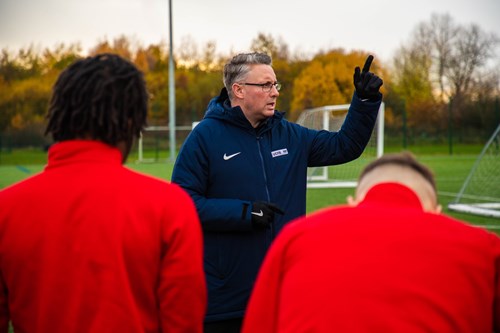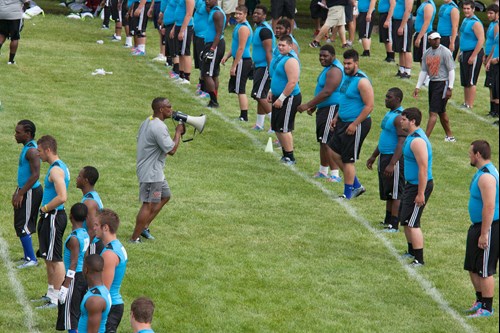Sports science is one of the most rapidly evolving sectors in this multi-billion pound industry, and has transformed performance analysis at an elite level in recent years.
As a result, there are a wide range of areas students can specialise in - from delving into the statistics that lie behind professional sport to remaining at the heart of it all pitch-side, a sports coaching science degree enables you to immerse yourself in this fascinating and hugely rewarding sector.
Here, we’ve listed some of the most common paths graduates of this new degree have taken. While there is an endless range of roles, if you’re interested in any of the following as a career, the degree might just be the right fit for you…

Coaching in clubs and sports organisations
One of the most popular pursuits following this degree is coaching, in various clubs, academies or sporting organisations. With more emphasis placed on the scientific analysis of individuals and teams than ever, you’ll be perfectly placed to understand and address the modern demands of this growing sector.
From coaching in the Premier League, like many UCFB graduates, to working on community projects, there are a broad range of roles in the coaching industry, whether you want to closely monitor and improve elite performance or focus on using sport as a force for wider social change.
On top of the pitch-side responsibilities of immersing yourself in the game, coaches also need to plan and implement specialised training programmes, which will involve working alongside physiologists and psychologists at an elite level, to ensure athletes maximise potential.
Performance analyst
The role of Performance analysts is closely linked to, but separate from, that of coaches. Rather than training players pitch side, they consider movement analysis, video and statistical databasing and modelling and often conduct coach and player data presentations.
The role has evolved almost beyond recognition in recent years - it used to primarily involve recording a training session and selecting highlights for coaches and managers to review, but with the unprecedented growth of technology it now requires a far broader skillset, from utilising tracking software to more advanced and meticulous data presentations.
Extensive knowledge and understanding of the game itself is also essential, as you’ll be discussing offensive and defensive formations, position of the ball, player movement and involvement, work rate, and even actions as specific as timings and gradual fatigue.
Exercise physiologist

A role in exercise physiology involves you researching and analysing the effects of strenuous exercise on your body, designed to enhance performance and prevent or overcome injury.
By assessing the medical history of individual athletes, exercise physiologists can create a specialised programme based off cardiovascular function and respiration, amongst other things. They will then monitor the training of these athletes, ensuring everything possible is done to help meet their goals or prepare them for competition.
You’re likely to work closely with other sports professionals, including physiotherapists, strength and conditioning coaches, and sport psychologists, to ensure all viewpoints and goals are aligned for specific athletes and teams.
Sports Administrator
A degree in coaching doesn’t necessarily mean you have to remain within that specific sector of sport forever. Many graduates choose to explore other areas over time, ranging from marketing to human resources, to gain a more holistic understanding of the industry.
There are a wide range of sectors you can specialise in, but sports administrator roles all oversee the successful running and promotion of an organisation in some capacity. Often graduates work in a sports administrator role alongside coaching, allowing them to expand their knowledge of the industry while still specialising in their area of expertise.
Find out more about UCFB’s BA (Hons) Sports Business & Sports Coaching degree.
Personal trainer

If you’re motivated to inspire people and push them to the edge of their abilities, and like the idea of being your own boss and dictating your own hours, becoming a personal trainer might be the right fit for you.
Having developed skills in leadership and instructing people, as well as the necessary knowledge of how our bodies respond to exercise, the course will enable you to become an experienced, and academically-credible, personal trainer, pursuing a different type of coaching altogether.
Find out more about UCFB’s BSc Sports Coaching Science programme.

















